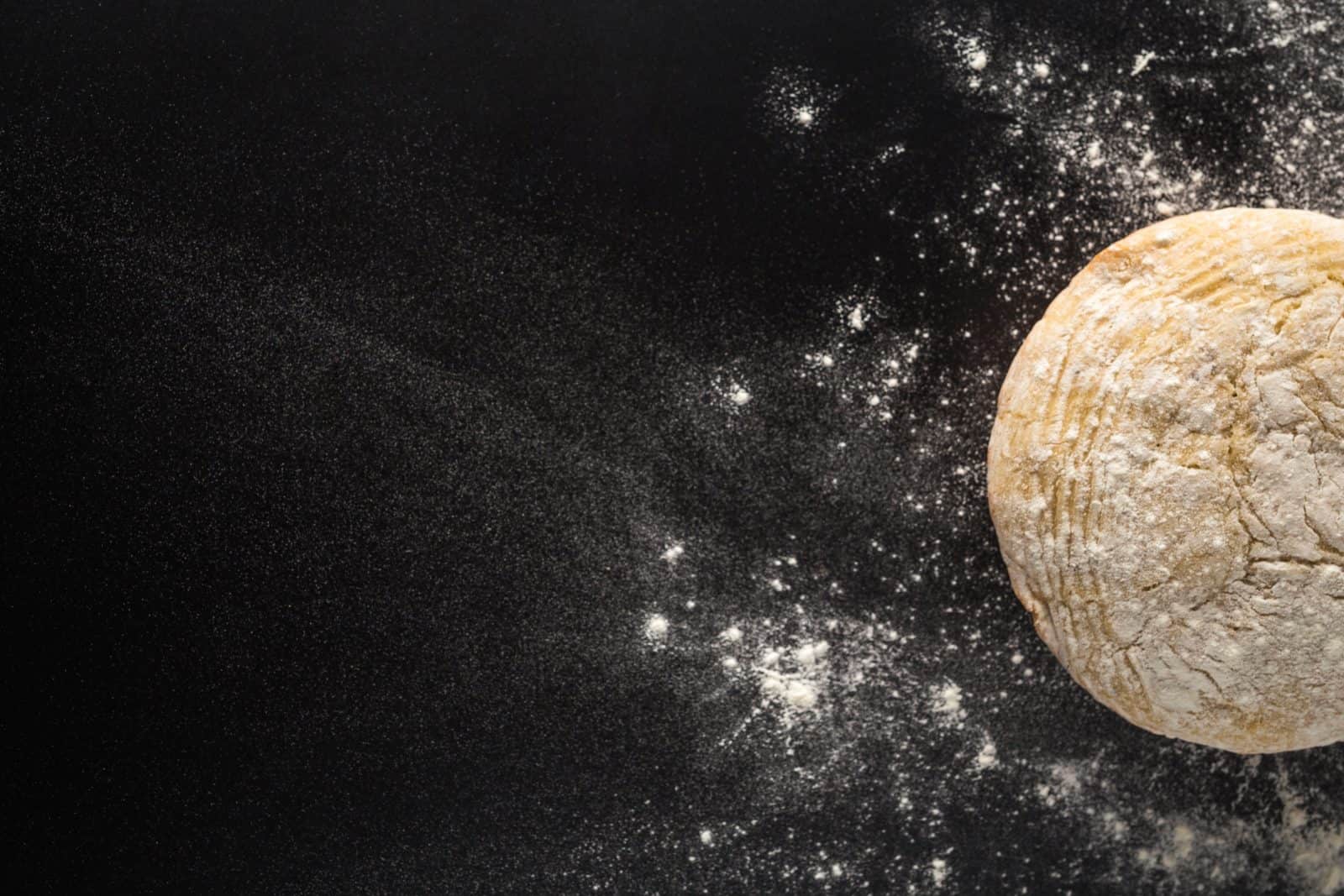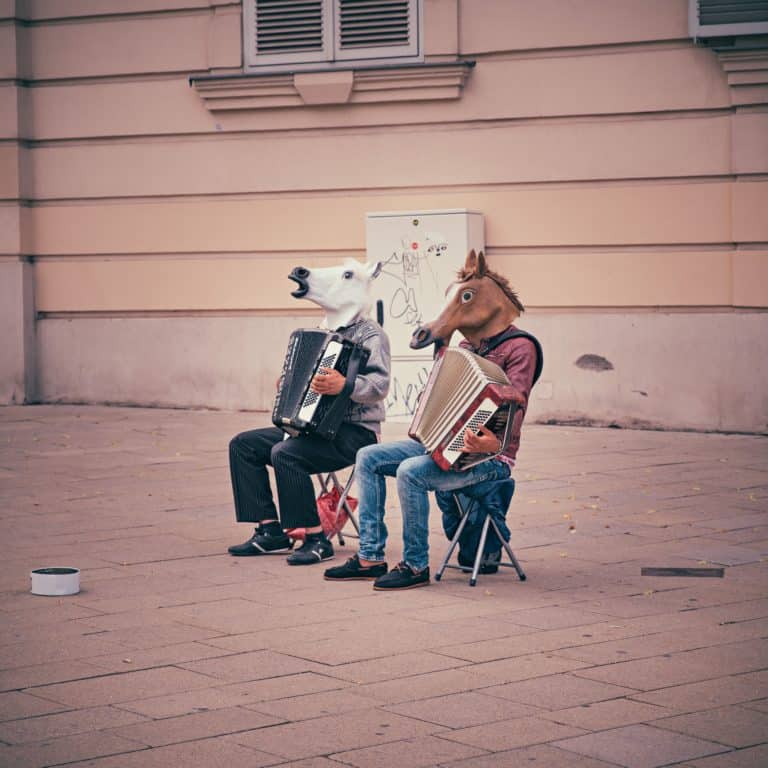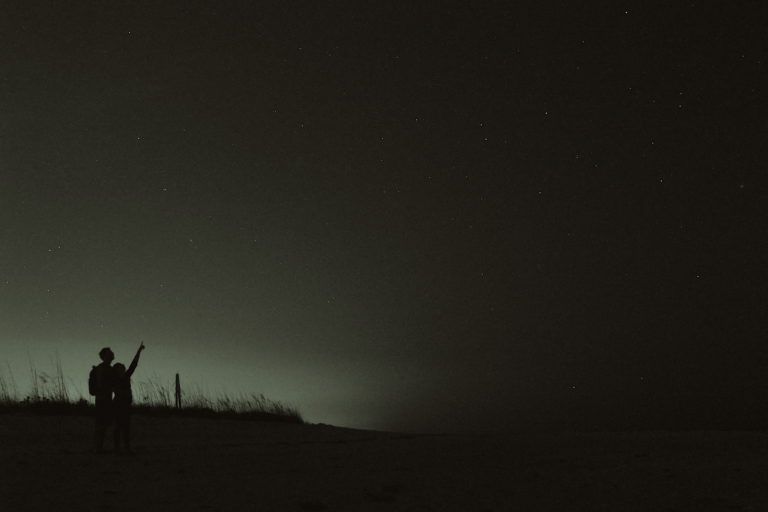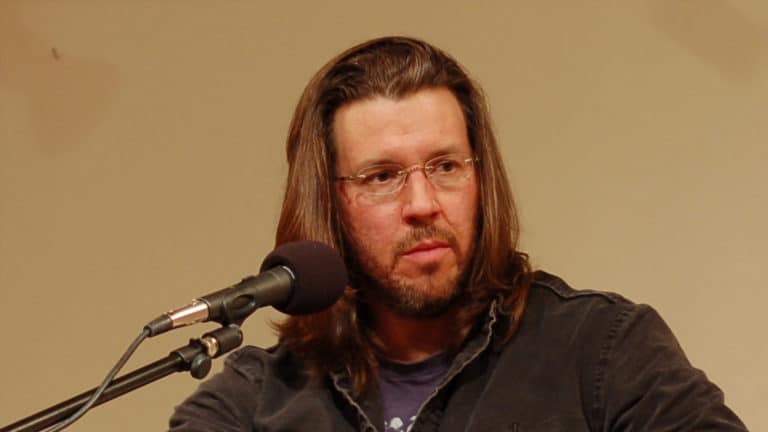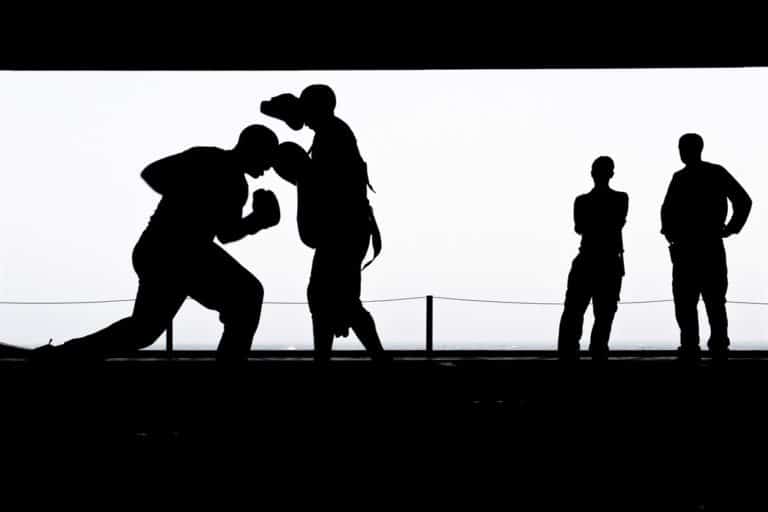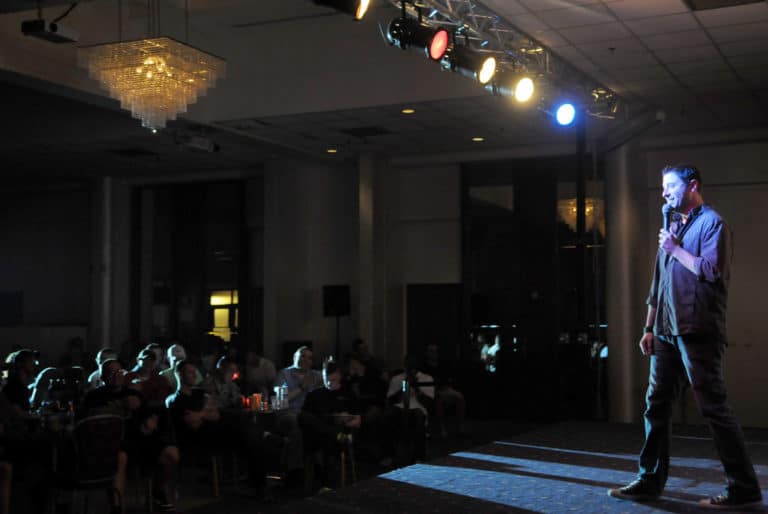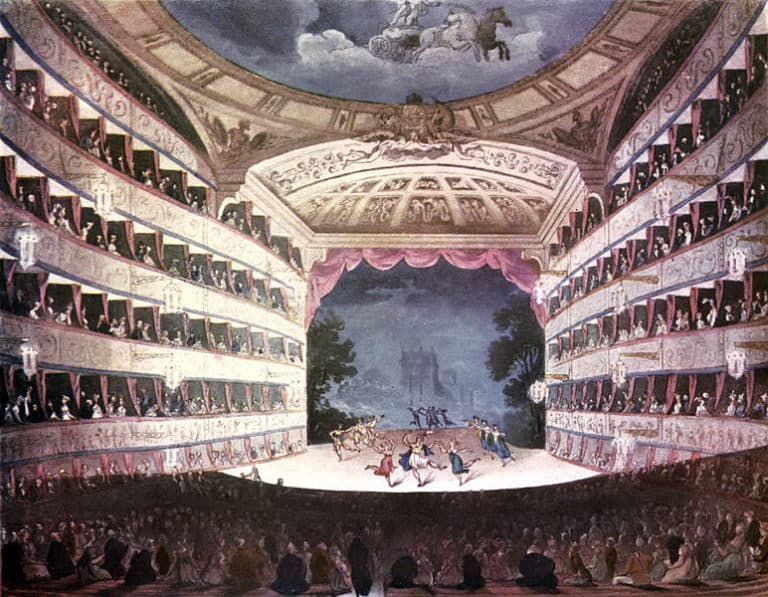Beginnings are hard. Imagine getting out of bed on a Sunday morning, or the phone call you’ve been putting off for weeks, or that stack of dishes hardening in your sink. Embedded in every start is the shadowed weight of all the work that comes ahead. It can be paralyzing: we know too much, are cowed by the immensity of our choices. It’s not the blank page that’s terrifying, but our forecast of the million little agonies it takes to fill it. So we hesitate, we second-guess, we quit without saving.
Carl Sagan said, “if you wish to make apple pie from scratch, you must first invent the universe.” So the task is clear: invent the universe.
It can feel impossible. You want to say that a person sits at a bus stop with a rolled up newspaper, but of course there is no bus stop, no person, no newspaper, no bus route, no road, no municipality through which such things must be filed. There are only words on a mostly-empty page arranged in your best approximate English, and a desperate insistence to ‘please, please believe me.’
There are a few tricks I know. Here’s one: begin your story like you’re in the middle of a conversation. It’ll feel like you trust your reader, and you juke the work of having to actually explain who anybody is or what they’re doing.
Or make it so it sounds like the narrator is talking to someone. Real conversational-like. Doesn’t matter if it’s first person, third person whatever. Just so long as the reader feels like they ought to stick around and listen.
That’s another trick.
A lot of writers start with an image—a condemned house, a lipstick stain, your grandfather’s cup—something quirky and strange and not altogether understood. Then, once the hook is nice and deep: the house collapses, the stain is discovered, the cup shatters against the wall.
Do this job long enough, you start to realize there are lots of ways to begin. Start with a memory, or the news, or your best friend from high school. Take a pickaxe to your childhood, or roll dice like a Dungeon Master, or shuffle through decks of cards designed byBrian Eno. Scheme with blueprints and index cards; dig through your high school English notes on dramatic structure, rising actions, denouements; or find comfort in the geometries of five-act structures, myth wheels, and buried icebergs.
There are manuals on craft and style and technique. Every night authors line up behind microphones, ready to tell it all. And you can gather all their advice like screws into a pickle jar.
You can fill a notebook with maxims: “show don’t tell,” “kill your darlings,” “good writers borrow, great writers steal.”
But at the end of the day, those are just tricks too. And don’t get me wrong, you can get by for a while on tricks alone (and my god, will you need them, if you want to survive your MFA, and your editors, and your colleagues, and your publishers) but it doesn’t refute the fact that what you do, you will always do alone.
Your writing teacher will say that your characters need to want something—and that’s true. But it’s also true for your story, your writing. It is true for you. There must be a need underlying not just the text, but the act, the author—every sentence, every page, every chair you sit in with your coffee and laptop, every idle thought about your characters, when you open your eyes in the morning, or make love, or dream.
Because there’s a reason most writers tell their students not to be writers—something more than ghoulish self-hatred or an affected condescension. It’s the understanding that as soft and bourgeois as being a writer is, it is still hard. There is a cost—not only in your time and your energy (which can be substantial), but also in the health of your relationships, your financial security, your self-esteem, your faith, your mental fortitude. You lay bare the most brutal parts of your humanity to an audience of not just the unnamed and the faceless, but your co-workers, your friends, your partner, your family—only to risk being hated, dismissed, vilified, forgotten, or misunderstood.
So it better be worth doing.
So yes, beginnings are a place. They are where your story starts. They are the first words on the first page from which a reader is ferried into an indefinite “middle” and onward to something one might call an “end.”
But beginnings are also a time—a moment when we can come to grips with who we are and the forces that brought us here. And if it is true that a story’s start is visualized as the left-most point on a line plot, then it is also true that a story is a stone fruit—a peach or plum—and its beginning is the pit on which we crack our teeth.
And for this part of the work there are no cheats, no hacks, no shortcuts.
Because beginnings will not stop being hard. They are hard for a reason. They are the invocation in which we must countenance our demons (“I am not good enough,” “I do not have the right,” “No one will care”) and command ourselves to be brave, to be daring, and that we choose how we meet our deaths.
We are always beginning. Every page starts blank, story after story, book after book, and all we know is that we never knew anything at all, and the things that drive all of us are our fear of death and our lust for life (or is it the other way around?), and it is to these twin elementals that all writing must offer blood tribute.
You are alive for now. Begin. Begin.

